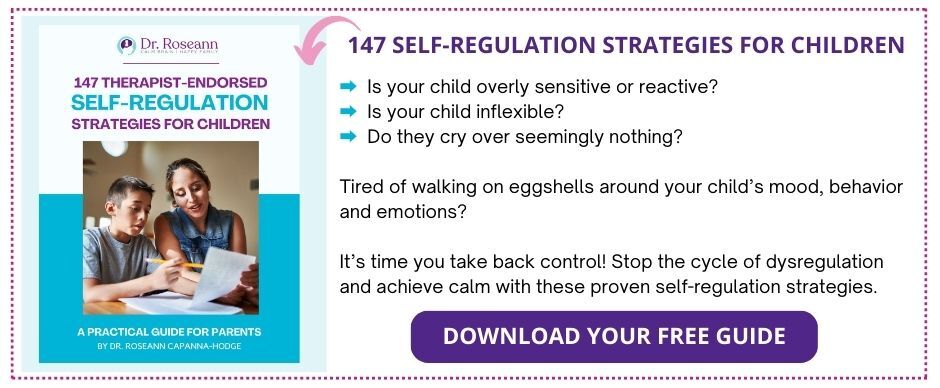In this episode, we’ll be focusing on fostering emotional regulation and how we can support our kids who are emotionally dysregulated to reinforce the positive behaviors we want to inculcate in them.
Fostering emotional regulation even for super dysregulated kids.
Fostering emotional regulation doesn’t have a limit; we can also teach even the super dysregulated kids how to regulate themselves and reduce dysregulated behaviors.
And when we speak of a dysregulated brain, we also have to gloss over the stimulated, sympathetic, dominant brain – a brain that’s in a red or overactive state – which is the main driver of many unwanted behaviors.
The beauty of a QEEG brain map, which has been such a helpful tool for us, is that we are able to see what’s really going on in the brain. It shows us which areas of the brain are overstimulated and under stimulated which gives us an idea how to treat the patient. Thus, we get to reduce dysregulation and prevent the brain from constantly going into an overactive state.
Managing stress and supporting your child.
It’s important for parents to self-regulate because our children regulate themselves off us. You have to learn proper stress management to be able to share your calmness with your child to help them manage their stress levels. We can do this by using positive communication which is not always easy. It requires patience, consistency and commitment.
And although there are options available for you like using our Calm PEMF device or undergoing our program, these efforts will be of no use if you don’t try to work things out as a family. Our kids need our support throughout everything as much as possible. By helping our kids do better, we are also helping ourselves.
How to deal with low frustration tolerance.
We’ve already mentioned how important it is to self-regulate and manage your own stress to be able to support your child properly. Now, the next strategy you can do is to teach them coping skills.
Kids have a low frustration tolerance compared to adults which is why we need to teach them how to deal with their emotions when things don’t go their way. Teaching them coping skills is crucial not just for their emotional well-being but also for their relationships with others.
Using emotional language with your kids.
Our kids watch every single thing that we do and copy them. That is why we want to use emotional language with our kids which I think is one of the hardest things to do now.
During the pandemic, people used less emotional language because of how disconnected we are. As we have experienced, the pandemic brought about significant changes including social distancing, work from home, online classes and limited social interactions.
We started to rely more on technology and the power of social media, which may have affected the way people express and perceive emotions. As we gradually transition away from the effects of the pandemic, we have to prioritize the use of emotional language to help our children develop a sense of awareness and understanding of their own emotions.
Using humor to deal with reactive kids.
For me, I try to use humor as much as possible and it has been helpful to calm not just myself but it even diffuses reactive kids a lot. It diffuses tension and strong emotions of our kids and shifts their focus and provides a break from an intense situation.
We have to keep in mind that the more you connect with them, the more they feel safe when you support them. Most of your work should be proactive. That's where the magic happens; the magic is in the micro steps that you do.
How to get your kids to think differently.
One of our goals as parents is to empower our kids. We have to teach them about their strengths. The more we empower them and enlighten them about themselves, the more they come to understand things better and the more they know how to respond to situations properly.
This is going to take time and can be a never-ending process because learning is a continuous process. But then again, we have to trust the process.
In one of my episodes, I’ve talked about cognitive reappraisal and the same would help our kids think differently by taking a step back and assessing a situation in its entirety, coming up with ideas and getting them to think.
You just have to be there for your kids and be a role model to them. Never shame or blame them as they get to know themselves. Let them celebrate who they are.
For more information, check out this blog on How to Deal with Emotional Dysregulation. Also visit The Dysregulated Kids Guide.

Links and Resources:
➡️ Join our FREE Natural Parenting Community to receive science-backed resources for your child and family. Join here.
➡️ Get help from Dr. Roseann and her team. Apply here.
➡️ “Is it ADHD or something else?” Take the quiz.








